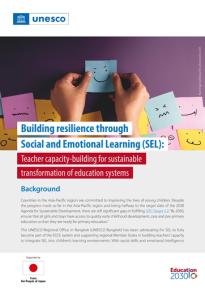Publication
Mother Tongue-based Literacy Programmes: Case Studies of Good Practice in Asia


The Asia-Pacific region hosts several thousand languages. Linguistic diversity, which is characteristic of many countries of the region, presents a variety of challenges for the education system. What languages should children learn? Even more important: What language should be used for imparting instruction in schools? What factors direct the policy makers in formulating language policies? What would be more appropriate in pedagogical terms? These questions need careful examination for understanding the current state of language use in education for different countries of the region. Indeed, the central role played by language in processes of cognition and learning is a well established fact. Researchers and thinkers have unreservedly endorsed the crucial value of competence in the mother tongue, which children acquire in the most natural fashion as they grow and develop, for further learning and education. It is in the context of such assertions and mounting empirical evidences on the value of mother tongue in education that UNESCO emphatically stated: "...it is important that every effort should be made to provide education in the mother tongue... On educational grounds, we recommend that the use of the mother tongue be extended to as late a stage in education as possible. In particular, pupils should begin their schooling through the medium of the mother tongue, because they understand it best and because to begin their school life in the mother tongue will make the break between home and school as small as possible." (UNESCO, 1951) Subsequently, the endorsement acquired the status of a "right" with its incorporation into the internationally established Convention on the Rights of Children. This Convention advocates education in the mother tongue at least through the initial years of schooling as a basic right of every child.
-----
Mother Tongue-based Literacy Programmes: Case Studies of Good Practice in Asia
Bangkok: UNESCO Bangkok, 2007, 166p.
ISBN 92-9223-113-8
#MotherTongue #MotherLanguage #InclusiveEducation #Equity&InclusionInEducation









